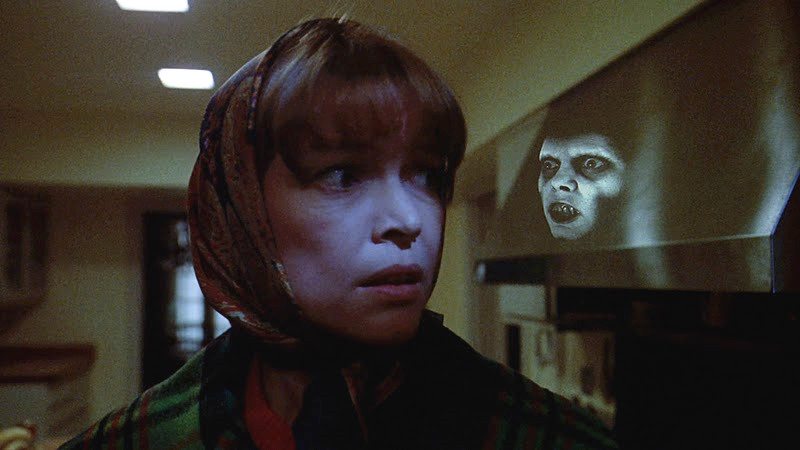
Since the beginning of cinema, horror has been one of the most popular genres with audiences, but one that’s most ridiculed by critics. This poor reputation was not unfounded, as still, the majority of horror films are below average, relying on cheap jump scares, underdeveloped characters, and gratuitous blood.
Unfortunately, the horror movies that are made with care and feature well thought out plots have to fight an uphill battle to be taken seriously. Luckily, some of cinema’s most talented filmmakers have taken on the challenge through the years, mastering the art of terror and thrills.
Still, it takes a very rare horror movie to elevate itself above the stigmas of the genre and present itself as what one might call a “profound” movie. As with other outliers of genre pictures, the setting of horror is used to convey a deeper message.
Infused within the scares are manifestations of real human problems and complexities, providing the audience with a complete experience that is enlightening and electrifying. The films on this list do both tasks tremendously, leaving a lasting mark on their viewers, either in their wandering thoughts or their nightmares.
15. The Brood (David Cronenberg, 1979)
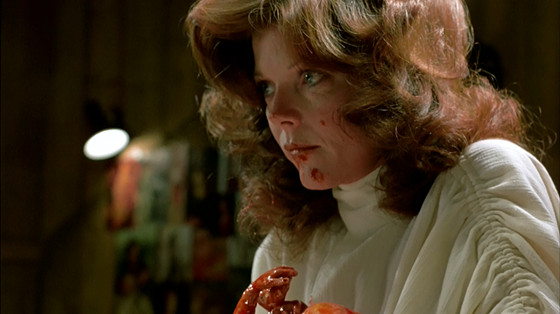
The king of body horror, David Cronenberg is one of two directors to have two films featured on this list. “The Brood” is one of the filmmaker’s earliest successes, but also one of the most memorable.
The film follows a desperate husband trying to gain custody of his child and uncover the secret his separated wife is hiding from him, regarding her psychological stay with the illusive Dr. Raglan. The wife and doctor, played by the brilliant Samantha Eggar and Oliver Reed, respectively, provide much of the mystery and unsettling atmosphere that set the stage for the disturbing horrorshow of the film’s final act, which is bizarre for even Cronenberg.
The special effects are considerably dated and the plot develops slowly, but the odd mood and occasional shocking event keeps the viewer involved and on their toes. Almost more compelling than the plot is the troubled relationship of the central couple, taking commonplace marital problems and amplifying them to dark extremes. It’s as if the husband’s worst nightmares came to life, and all the audience can do is watch as it careens out of control.
14. The Wicker Man (Robin Hardy, 1973)
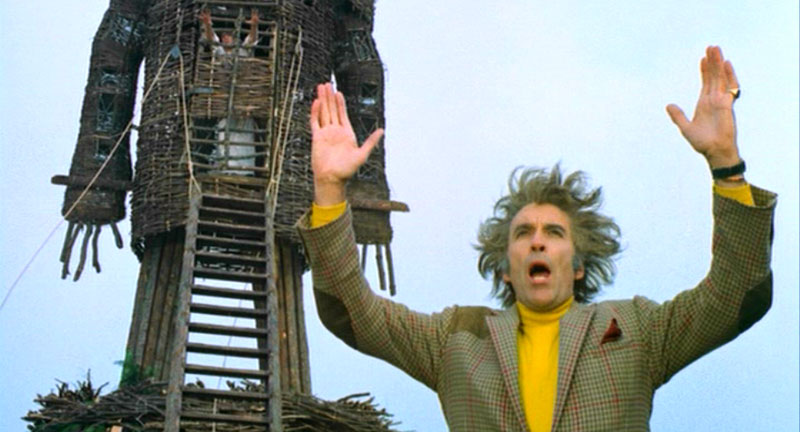
No, this is not the infamous Nicolas Cage vehicle (which is actually quite enjoyable due to its campy merits), but an entirely different approach to the haunting story. Wrongfully forgotten, even before it was hidden under its remake’s shadow, this British classic provides a unique approach to the much-ventured genre.
A policeman travels to a remote isle in the Hebrides to investigate a young girl who went missing. To his surprise, he finds that the island’s people, led by Lord Summerisle, played by Christopher Lee, worship pagan gods and flout the customs of society.
Much of the film plays out more like a mystery than a horror film, revealing clues and building intrigue, but it makes a brilliant shift into one of the most horrifying endings of all time. It is this twist that much of the film’s legacy rides on, including its presence on this list.
While the originality of the plot and setting already elevate it above common fare, the closing scene’s power and connotations are what is burned into the viewer’s mind, provoking deeper terrors than are even shown on screen.
13. The Babadook (Jennifer Kent, 2014)
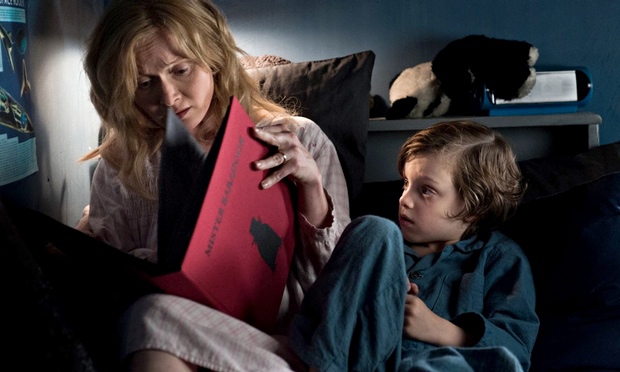
Coming out of nowhere, this indie flick from Australia became an international success thanks to word of mouth. Most of the reason for this hype is because, quite simply, “The Babadook” is one of the scariest movies of the decade. The plot follows a mother who is struggling to raise her young son with behavior issues after her husband passes.
As her son begins acting out more and more, she is plagued by something else: a book. This book, which shares the name of the movie, appears to be a children’s book at first glance, but grows darker, with very disturbing content and illustrations, and as much as she tries to destroy the book, it always comes back, and soon, so does the monster it contains.
The movie’s interesting characters, plot devices, and horrifying scenes already cement it as a modern horror classic, but director Jennifer Kent takes it further. Dropping hints along the way, she unfolds the true cause of the terror in the family’s life, opening up discussion for what exactly the film means and the what the motives of the characters are. Instead of just a straightforward horror movie, it also comments on coping with loss and moving on with your life.
12. Get Out (Jordan Peele, 2017)
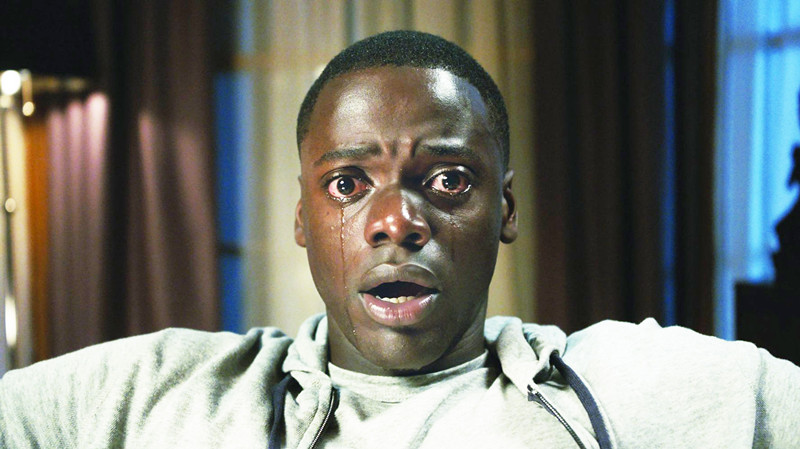
A cultural phenomenon of the last year, sketch comedian turned feature filmmaker Jordan Peele hit the ground running with this explosive debut. Combining his famed wit and humor with an interesting premise, sharp directing, and strong social commentary, Peele somehow created a perfectly balanced movie that performed on all levels, and appealed to just about everyone.
Daniel Kaluuya stars as a young black man who goes on a trip to visit his white girlfriend’s parents. At first all goes well, but without going into spoilers, he slowly starts realizing small things out of the ordinary until he unravels the sinister plot behind the events.
The wonderful thing about this film is that, although it is completely politically charged, it is well enough crafted that it can be enjoyed as a pure horror/thriller. The racial theme, of course, adds another important level to the work, earning it an Oscar for Best Original Screenplay and universal acclaim. Although what is being is said is nothing new, it is nonetheless refreshing to see a popular horror film that makes you think.
11. The Orphanage (J.A. Bayona, 2007)
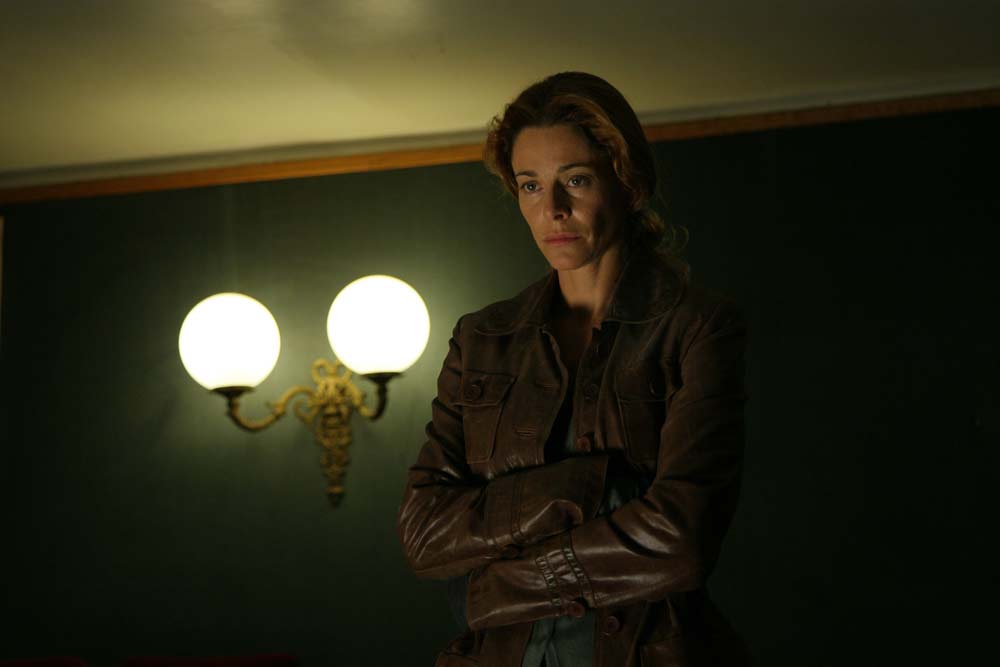
This Spanish gem impressed critics worldwide for its ability to be very scary without resorting to cheap scares like so many of the other horror movies of the time. Modeled after classic Spanish cinema, “The Orphanage” follows a mother, Laura, who goes back to the orphanage where she grew up, accompanied by her husband and child. Laura’s plans are to turn the old estate into a new home for troubled children, but these plans are soon interrupted by disturbing events.
Produced by Bayona’s friend Guillermo del Toro, the film’s style is similar to many of his recent films, such as its atmosphere and creature design. One of the most interesting things about the film is that although the events may be scary to the characters (and viewers), the spirits are not necessarily malevolent.
Instead, the fear is used to convey the confused and lost nature of the characters. With a brilliant combination of chills and drama, “The Orphanage” is a must-see gem of international horror.
10. Repulsion (Roman Polanski, 1965)
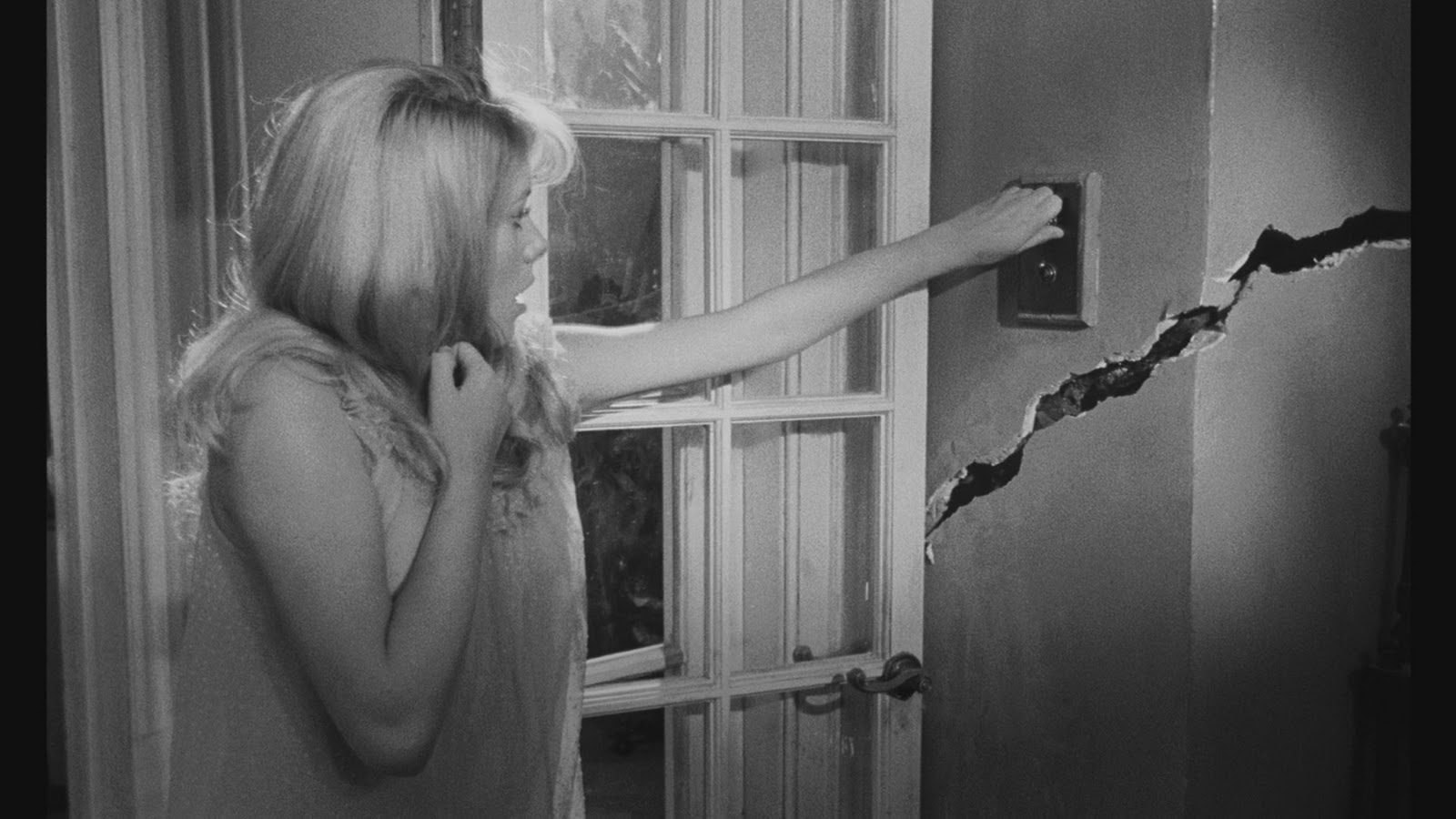
Aside from Cronenberg, Roman Polanski is the only other director with two films on this list. Polanski’s second film, and the first in the English language, stars Catherine Deneuve as Carol, a bored manicurist in London who lives with her sister. Carol is seemingly disinterested in everything, and has a great impatience for men, including her sister’s boyfriend and her many suitors.
When her sister goes on vacation, Carol becomes even more isolated than before, hallucinating and losing her grip on reality. Polanski shows Carol’s descent into insanity with dark, surreal imagery, eventually leading to her acting violently toward men.
This chilling tale of psychological torment and sexuality is one of Polanski’s most effective works, being frightening as well as commenting on the limited role of women in society. Deneuve is also one of the strong points of the film, delivering one of the best performances of her career as the emotionally devoid beauty. Noted as much for its surreal imagery as its complex thematic material, “Repulsion” started Polanski on a career as one of the greatest horror/thriller directors of his time.
9. It (Andy Muschietti, 2017)
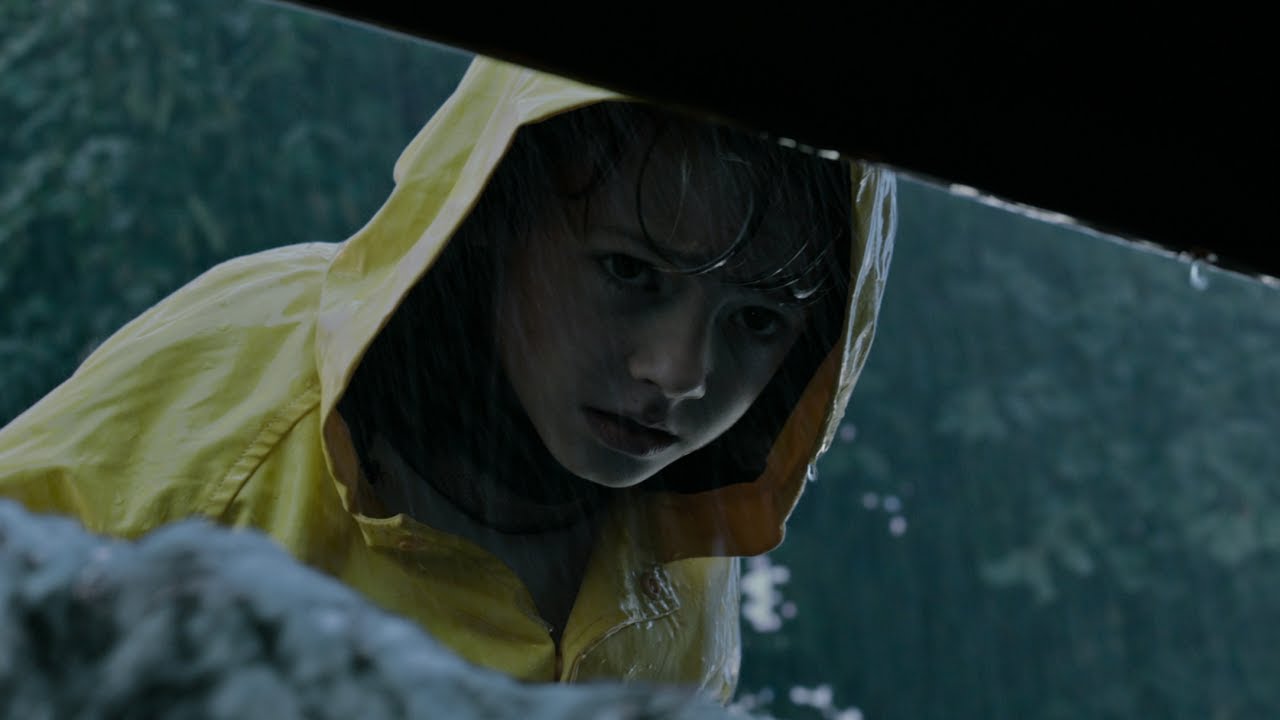
Arguably the greatest film adaptation of a Stephen King novel, based on one of his most profound tales, “It” is equal parts moving and scary. The story is set in the small Maine town of Derry, which is plagued by frequent disappearances of children and follows a gang of kids trying to uncover the mystery.
The gang’s leader, Bill, drives the search because his kid brother George is one of the missing children. They soon discover that the culprit is an evil alien in the form of a demonic clown called Pennywise, who navigates the town through the sewers. He comes out every 27 years to feed on the children of Derry, and the gang sets out to end him for good.
The film is only part one of two, with the second part coming out in September of next year, focusing on the gang as adults 27 years later. There is much to be afraid of in this movie, most obviously the terrifically designed Pennywise, played by Bill Skarsgard. But there are other monsters in the film as well, many of which are not supernatural at all, like deranged bullies and abusive stepfathers. It is this combination of the real world fears of the children and the otherworldly horrors in the town that make the film so thought-provoking, tying the scares to real life.